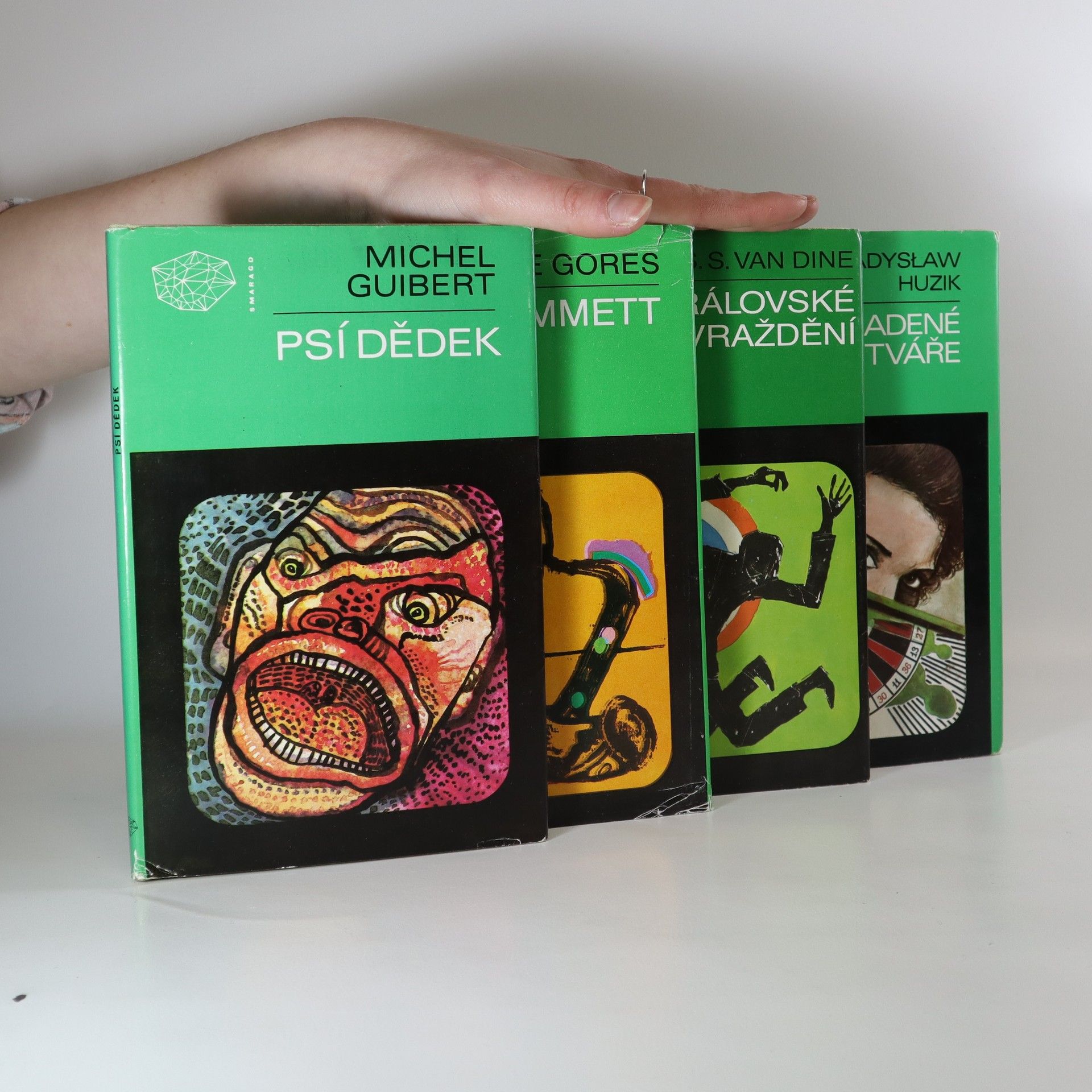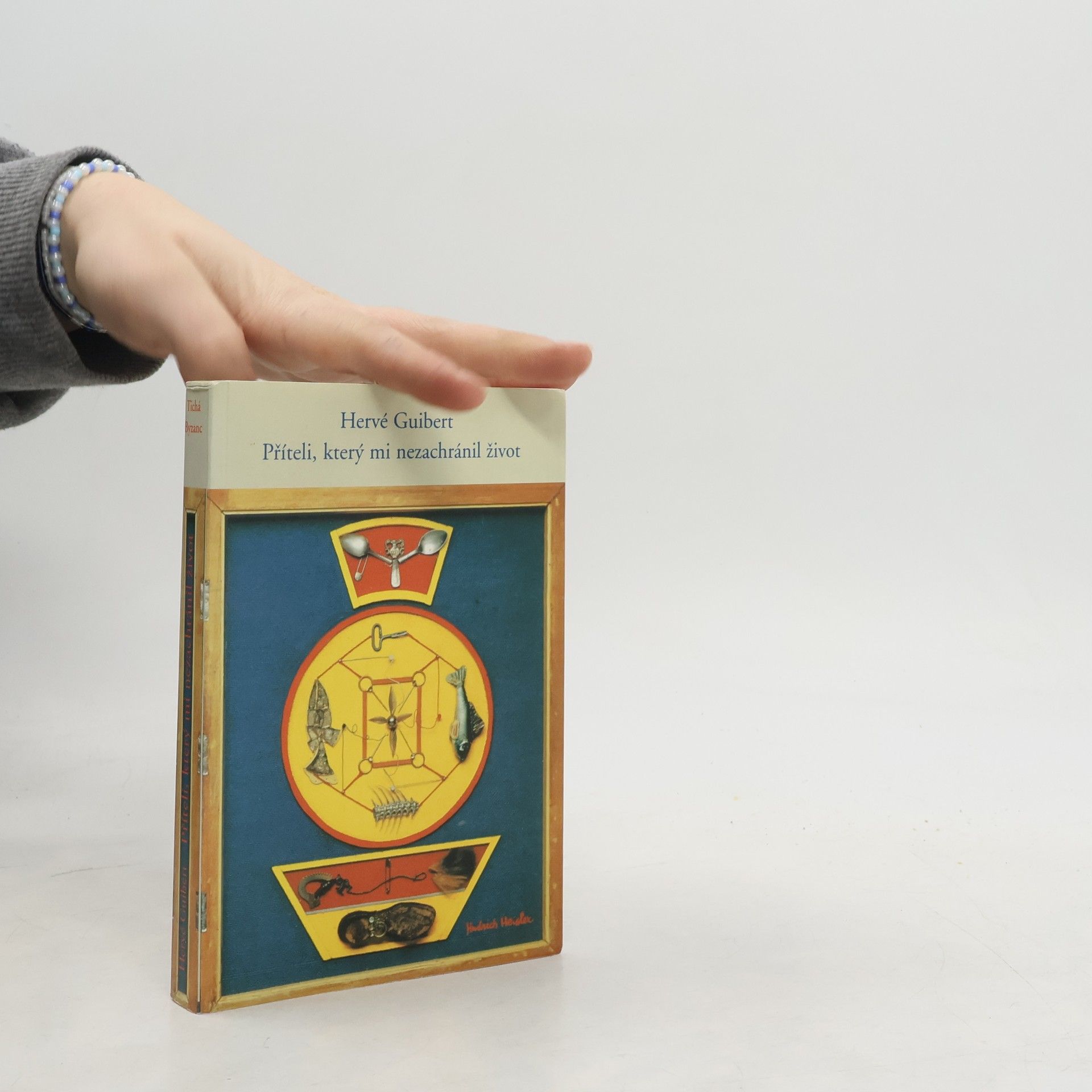Příteli, který mi nezachránil život
- 342 stránek
- 12 hodin čtení
Otevřená až syrová výpověď o skryté tváři pařížské umělecké a intelektuální scéně, intimní svědectví o autorově (*1955) generaci a její „kletbě“ – AIDS.
Hervé Guibert byl francouzský spisovatel a novinář, jehož tvorba čerpala převážně z autobiografie a autofikce. Jeho styl, ovlivněný autory jako Roland Barthes a Thomas Bernhard, se vyznačoval hledáním jednoduchosti a strohosti, často s využitím sofistikovaného slovníku a syrových popisů. Guibertovy krátké romány s často fiktivně upravenými autobiografickými prvky vtahují čtenáře do brutálně nastolených zápletek. V pozdějších dílech, která reflektovala jeho nemoc s AIDS, se věnoval každodennímu postupu nemoci a umělecké reflexi vlastního těla a utrpení.







Otevřená až syrová výpověď o skryté tváři pařížské umělecké a intelektuální scéně, intimní svědectví o autorově (*1955) generaci a její „kletbě“ – AIDS.
"Guibert is perhaps France's best known author of AIDS narratives. This brief, literary rumination of photography was written in response to Barthes's Camera Lucida. Guibert combines explorations of the artistic process with memoir, revealing his particular experience and vision of the world as he tries to express what he would have caught in photographs he attempted to take but missed through technical mistakes."--Publisher info
Hervé Guibert's incandescent correspondence with Belgian poet Eugène Savitzkaya.In 1977, Hervé Guibert discovered the first novel written by Eugène Savitzkaya, Mentir, and sent him his La mort propagande, which had just been published. In the following years, they exchanged the books they had written, read each other, appreciated each other. They saw each other rarely, however: one lived in Liège, the other Paris.A turning point occurred in 1982, when Hervé published "Lettre à un frère d'écriture," in which he declared to Eugène, "I love you through your writing." The tone had changed; Hervé, obsessed with his correspondent, wrote him increasingly incandescent letters. 1984 would, however, see the sudden extinguishing of that passion. A deep friendship replaced it, which found itself with new areas to explore: the adventure of publishing L'Autre Journal and at the Villa Medicis, where they were both fellows. These nearly eighty letters, exchanged between 1977 and 1987, form a correspondence that is all the more unique for being the only one whose publication was authorized by Guibert. An intersection of life and writing, self and other, reality and fiction, their release is a renewal of Guibert's oeuvre.
A madcap tale of sadistic power-play by one of the 20th century's most beloved French gay writers. My Manservant and Me is a story about the trials and tribulations of having a live-in valet. Written from the uneasy perspective of an aging, incontinent author of extremely successful middlebrow plays, we learn about his manservant, a young film actor who is easily moved to both delicate gestures and terrible tantrums; who's been authorized to handle his master's finances, who orders stock buys, dictates his master's wardrobe, sleeps in his master's bed, and yet won't let him watch variety television. My Manservant and Me reveals the rude specificities of this relationship with provocative humor and stylistic abjection. This manservant won't be going anywhere.
Stories that map the writer's artistic development, written with candor, detachment, and passion.
Zouc par Zouc a vu le jour grâce au hasard d'une rencontre entre Hervé Guibert et Claude Michel Cluny, à la terrasse d'un café d'Avignon. Avertie du projet de livre qu'ils veulent lui consacrer, Zouc retrouve Hervé - pas encore Guibert - dans un café de Montparnasse pour un premier entretien. Elle a tenu absolument à ce que ce soit lui, Hervé, qui s'en charge. Hervé a vingt-deux ans, elle à peine plus. Ils éprouvent l'un pour l'autre une attirance et une fascination très fortes qui conduisent Zouc à laisser Hervé fouiller avec délectation dans son histoire. Paru dans un livre illustré à la rentrée 1978, ce texte était devenu, aujourd'hui, introuvable.
Hinrich Schmidt-Henkel, geboren 1959, lebt in Berlin. Er übersetzt u. a. auch Jean Echenoz, Édouard Louis, Jon Fosse, Tomas Espedal und Tarjei Vesaas. Ausgezeichnet wurde er mit dem Jane Scatcherd-Preis, dem Paul-Celan-Preis des Deutschen Literaturfonds und dem Straelener Übersetzerpreis der Kunststiftung NRW (zusammen mit Frank Heibert).
Étude du corps jouissant, souffrant, agonisant, puis mort, La mort propagande trace en douze brefs chapitres un troublant autoportrait de son auteur. D'une violence et d'une force de provocation inouïes, La mort propagande fut le premier livre publié d'Hervé Guibert, alors âgé de vingt et un ans.
À l'ami qui ne m'a pas sauvé la vie - literatura francuskojęzyczna. Idealna książka do nauki francuskiego dla miłośników języka i pasjonatów czytelnictwa. « J'ai eu le sida pendant trois mois. Plus exactement, j'ai cru pendant trois mois que j'étais condamné par cette maladie mortelle qu'on appelle le sida. Or je ne me faisais pas d'idées, j'étais réellement atteint, le test qui s'était avéré positif en témoignait, ainsi que des analyses qui avaient démontré que mon sang amorçait un processus de faillite. Mais, au bout de trois mois, un hasard extraordinaire me fit croire, et me donna quasiment l'assurance que je pourrais échapper à cette maladie que tout le monde donnait encore pour incurable. De même que je n'avais avoué à personne, sauf aux amis qui se comptent sur les doigts d'une main, que j'étais condamné, je n'avouai à personne, sauf à ces quelques amis, que j'allais m'en tirer, que je serais, par ce hasard extraordinaire, un des premiers survivants au monde de cette maladie inexorable. »